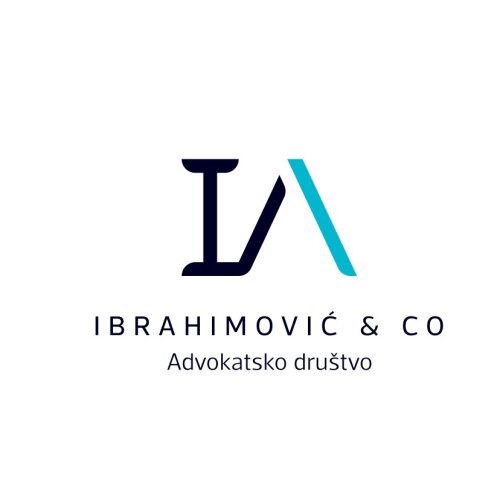Best Art & Cultural Property Law Lawyers in Sarajevo
Share your needs with us, get contacted by law firms.
Free. Takes 2 min.
List of the best lawyers in Sarajevo, Bosnia and Herzegovina
About Art & Cultural Property Law in Sarajevo, Bosnia and Herzegovina
Art & Cultural Property Law in Sarajevo, Bosnia and Herzegovina pertains to the legal frameworks governing the ownership, protection, and restitution of cultural heritage and art pieces. This area of law is particularly important in Sarajevo, a city with a rich and complex history, home to numerous historical sites, museums, and cultural artifacts. Legislation in this field is designed to preserve the country’s diverse cultural heritage and ensure that cultural property is protected from illegal export, import, and ownership disputes. The law encompasses various aspects, including cultural property restitution, provenance research, and cooperation with international conventions on cultural property protection.
Why You May Need a Lawyer
There are several scenarios where one might require legal assistance in Art & Cultural Property Law. These include disputes over the ownership of art and cultural objects, issues related to the illegal trade and trafficking of cultural property, the need for restitution of stolen or lost art, compliance with national and international regulations on art exports and imports, and legal advice on the protection of cultural heritage sites. Additionally, museums, galleries, and private collectors may need guidance on provenance research and due diligence to ensure legal and ethical acquisition processes.
Local Laws Overview
Local laws in Sarajevo and Bosnia and Herzegovina relevant to Art & Cultural Property Law are embedded in a range of legislative acts and international agreements. Key elements include the Law on the Protection of Cultural Heritage, which provides the framework for safeguarding national heritage and outlines the responsibilities of institutions and individuals. Bosnia and Herzegovina is also a signatory to international conventions like the UNESCO Convention on the Means of Prohibiting the Illicit Import, Export and Transfer of Ownership of Cultural Property, which impacts how cultural artifacts are handled across borders. Local customs regulations include specific provisions to prevent the unauthorized export of art and antiquities.
Frequently Asked Questions
What is the process for claiming restitution of cultural property?
To claim restitution, you would typically file a request with the national authorities responsible for cultural heritage, providing documentation proving ownership and evidence of illegitimate removal or loss.
How can I verify the authenticity and provenance of an art piece?
Authenticity and provenance can be verified through research in art databases, consultation with experts, and provenance documents maintained by dealers or auction houses.
What are the penalties for illegal trade in cultural property?
Penalties may include fines, confiscation of the items, and, in severe cases, imprisonment. Legal actions depend on the specifics of the violation and the value of the items involved.
Are there any tax incentives for donating art to a public museum?
Yes, certain tax incentives are available for donations to public museums, although these may vary. It's advisable to consult a tax advisor for precise details.
How does the law protect cultural heritage sites in Bosnia and Herzegovina?
The law protects cultural heritage sites through registration, regular monitoring, and restrictions on alterations to ensure their preservation for future generations.
What should galleries and collectors do to comply with due diligence standards?
Galleries and collectors should conduct thorough provenance research, document the acquisition process, and ensure no legal encumbrances are associated with the art pieces they acquire.
How do international conventions affect cultural property laws locally?
International conventions provide frameworks that local laws build upon to regulate the protection, export, and import of cultural property, ensuring cooperation across borders.
What is cultural property under local laws?
Cultural property refers to items of historical, artistic, and cultural significance, including artifacts, artworks, manuscripts, and monuments protected under national law.
Who oversees the protection of cultural property in Bosnia and Herzegovina?
The Ministry of Culture and Sports, along with other governmental bodies, is primarily responsible for the oversight and protection of cultural property, working to enforce laws and regulations.
Can individuals restore or alter a registered historical building?
Any restoration or alteration requires permission from the relevant cultural heritage authorities to ensure it complies with preservation standards and regulations.
Additional Resources
Several resources can assist those seeking information or legal advice in this field. The Ministry of Culture and Sports Bosnia and Herzegovina provides guidance and resources on cultural heritage laws. The National Museum of Bosnia and Herzegovina, and other cultural institutions, can also offer insights into legal and practical aspects of art and cultural property management. Additionally, international bodies such as UNESCO offer guidelines and support related to cultural property protection globally.
Next Steps
If you require legal assistance in Art & Cultural Property Law, consider reaching out to lawyers who specialize in this field. You may begin by consulting the Bar Association of Bosnia and Herzegovina for a list of qualified practitioners. Documentation is critical; ensure all relevant records on art or cultural property in question are up-to-date and accessible. Moreover, joining relevant professional groups or forums can provide valuable support and information exchange opportunities.
Lawzana helps you find the best lawyers and law firms in Sarajevo through a curated and pre-screened list of qualified legal professionals. Our platform offers rankings and detailed profiles of attorneys and law firms, allowing you to compare based on practice areas, including Art & Cultural Property Law, experience, and client feedback.
Each profile includes a description of the firm's areas of practice, client reviews, team members and partners, year of establishment, spoken languages, office locations, contact information, social media presence, and any published articles or resources. Most firms on our platform speak English and are experienced in both local and international legal matters.
Get a quote from top-rated law firms in Sarajevo, Bosnia and Herzegovina — quickly, securely, and without unnecessary hassle.
Disclaimer:
The information provided on this page is for general informational purposes only and does not constitute legal advice. While we strive to ensure the accuracy and relevance of the content, legal information may change over time, and interpretations of the law can vary. You should always consult with a qualified legal professional for advice specific to your situation.
We disclaim all liability for actions taken or not taken based on the content of this page. If you believe any information is incorrect or outdated, please contact us, and we will review and update it where appropriate.









